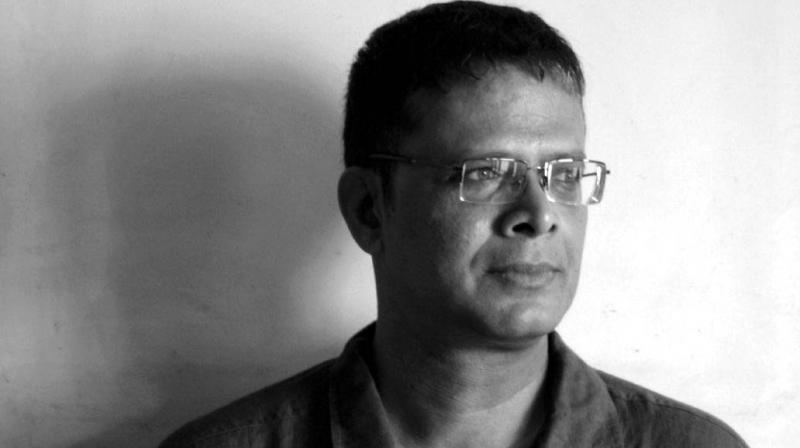What it's like being inside Jerry Pinto's head!
The narrator can't look away, it's an almost obsessive focus.\"

Bengaluru: Pinning a poet down long enough for a chat is very difficult, they are wont to nod a vague assent and proceed to drift off to every place that you are not. It is with some nervousness, therefore, that one approaches Jerry Pinto, that Colossus of contemporary Indian literature, in large part because one never knows what to expect. Tales of his fearsome presence in the classroom go hand-in-hand with his quirky sense of humour and his short temper, although it must be said, luck was on our side today!
'What's it like being in Jerry Pinto's head?' The question slips out before better sense could prevail. "I'm not sure, because I haven't been in anybody else's head.." he laughs. "This is what I have - I can fatigue myself." He became, in his own words, "self conscious" at a very early age, finding within, the ability to examine oneself. "I'm on stage, thinking, 'Jerry, your neediness is showing. You don't have to do this but it's working'. And then I think, 'Is that all? Is that response all I want? Do I have a choice? Could I have done it differently? I tire myself out thinking of these things! I believe, however, that I am less tired than I used to be. As you grow older, there are things you learn to forgive about yourself."
The Mumbai-based writer received the Sahitya Akademi Award and the Windham Campbell Prize in 2016 for his debut novel, Em and the Big Hoom (2012) - and there are few homes in which it has not found a place. The book took him 25 years to write, as he grappled with his own life, the trials of dealing with a bipolar mother and separating the pain he felt from the story he was trying to tell.
"I think that the demand of art is not for you to feel as the writer, but to bring it out in the reader. The experience, the catharsis - they're not yours, they belong to the reader." In the more trying moments, he would comfort himself with the thought that this story is about the Mendis family, not the Pinto household.
"Self pity is a very human condition. It's lovely to feel, of course, but I worked very hard at keeping it to myself and sticking to observation. What is it like when you have a very small home and one person is literally sucking the oxygen out of it, taking up all the space. Whether it's Em or real life, whether they were depressed or hugely manic, they are the focus of everything.
The narrator can't look away, it's an almost obsessive focus."
His has been an extraordinary life, one that has involved taking crippling emotional setbacks and turning them into something worthwhile. Em and the Big Hoom, for instance, led to discussions on mental health. His translation of Daya Pawar's Baluta brought the the Dalit plight to English-speaking audiences.
Still, art and social commentary don't always need to go hand in hand. "If you're starting at a social message, it is not art. If, on the other hand, you start with art, it's entirely likely that the person receiving it will turn it into something they need, socially or politically. And it lies in letting the art go out and do its work in the world."
This brings him to his most recent endeavour, Note, which deals with a subject that troubles him deeply teenage
suicide. "Everytime I read about it, I think 'they don't know what the world had in store for them! A cup of tea at the right moment could have changed everything! It's a long process - I stop and think of the dangers this book could contain, what if it is the final trigger to a person contemplating death? But you have to claim the good with the evil. And I do believe that not addressing something is not going to make it go away."

